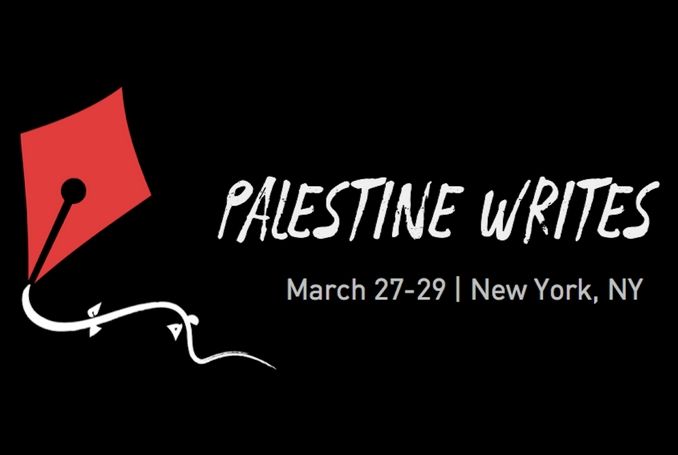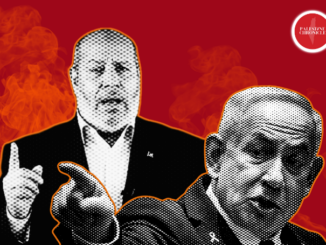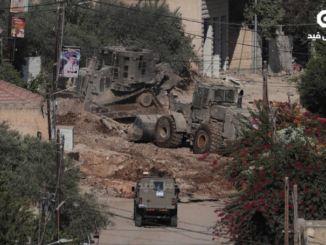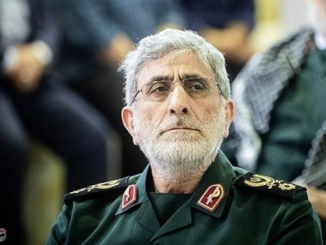
By Benay Blend
In the title quote, Mahmoud Darwish (1941-2008) expresses his desire for a space that preserves Palestinian identity within a broader context. As a participant, he would have felt quite at home at Palestine Writes, described by organizers as the first major festival focused on Palestinian literature in the United States.
Taking place in New York City from March 27-29, it draws together writers, artists, filmmakers, booksellers, scholars, and publishers, all of whom find common ground around their love of words. In the hands of Palestinian writers, claims Tahrir Hamdi, bearing witness becomes a “guard against the idea of liberation itself dying.”
Palestine Writes will be the first major festival dedicated to celebration of Palestinian literature in US, March 27-29 2020, New York https://t.co/AYQqoZc7rH
— Nada Abdelmoneim ندي عبدالمنعم (@NAbdelmoneim) September 24, 2019
For this reason, Palestine Writes fulfills an important niche: Its vast array of participants—Randa Jarrar, Keenanga Yamahta-Taylor, Ramzy Baroud, Nick Estes, and Remi Kanazi, to name a few—sound a call that bridges barriers between Palestinians who are normally separated from each other as well as from other ethnic groups.
In her latest book Freedom is a Constant Struggle: Ferguson, Palestine, and the Foundations of a Movement (2016), Angela Davis, who will speak at the conference, draws parallels between Ferguson and Palestine to highlight the need for transnational solidarity. Woven throughout her work is the concept of intersectionality, a notion reiterated by Rafaat Alareer, editor of Gaza Writes Back: Short Stories from Young Writers in Gaza Palestine (2013).
As he explains below:
From my personal experience, there is no literature more similar to Palestinian literature like African and African American Literature. In my poetry class, Maya Angelou’s “Caged Bird” is closest to the feelings and experience of young Palestinian than any other text. Last year, a student whose father was about to finish an 18-year sentence in Israeli dungeons, cried bitterly upon discussing the poem. The same is true of the novel. Nigerian novelist Chinua Achebe is an example here. The struggle against alien intruders, the fight for freedom and justice, the importance of narratives and cultural traditions and heritage are common features in both Palestinian and Black and indigenous literatures. Therefore, like how many black people support the Palestinian struggle for freedom and how many Palestinians support Black Lives Matter, Palestinian and Black writers and indigenous writers must come together, write together, talk together, unite together and fight for freedom and justice together.
" Palestine Writes participant Ryan "Little Eagle Pierce" has redefined what “native New Yorker” really means in its broadest sense and shows us different ways of understanding native culture in New York,… https://t.co/M8veXvq6O1
— Rima Najjar (@rima123) September 7, 2019
Nick Estes (Lower Brule Sioux Tribe) and Melanie Yazzie (Navajo), both scholars, authors and activists, bring an Indigenous perspective to the festival. As founding members of The Red Nation, they reflect their organization’s statement on solidarity with Palestine:
Palestine is the moral barometer of Indigenous North America. While Palestinians living in scattered communities might still relate to the homeland as their place of origin, this stance does not preclude claiming a positionality that becomes the means to join a struggle with other oppressed people. Like Palestinians, Native people continue to resist systematic colonialism by the U.S. We refuse to be uprooted. Refusal is the basis of all forms of anti-colonial resistance, and we, as the original peoples and nations of these lands, extend unwavering solidarity and support to our Palestinian relatives who struggle for liberation from the same violence that threatens to erase our histories and our futures.
While tied to their space of homeland, these writers demonstrate a commitment to mutual liberation founded on reciprocal opposition to colonial power wherever it exists.
Organizers Nada Elia, M. Lynx Qualey, and Susan Abulhawa also allude to this focus on border crossing that makes this festival unique. As Nada Elia observes,
Palestine Writes will highlight the richness of Palestinian art for a North American audience who may not have had the opportunity to experience this work due to lack of linguistic access, the severe restrictions on movement of Palestinians, and the censorship and repression of Palestinian speech in the US.”
In addition to providing a venue for Palestinian voices in the states, this festival, writes M. Lynx Qualey,
opens space for connections, particularly between Palestinian, African-American and Native-American writers. Alongside Davis, Native-American writers Nick Estes, a journalist and Ryan “Little Eagle” Pierce, a playwright, will also feature at the festival, as will Caribbean-American poet Aja Monet.
In This is Not a Border: Reportage and Reflection from the Palestine Festival of Literature, a compilation gathered from ten years of PalFest’s cultural production, editors Ahdaf Souceif and Omar Robert Hamilton assert that in Palestine restrictions on freedom of movement are always quite a hurdle. In his review of the book for Electronic Intifada, Tom Sperlinger describes the annual event that brings approximately 200 writers and professionals to both the occupied West Bank, and sometimes also the Gaza Strip. Participants in PalFest often travel from abroad to in order to join in bringing art to rural areas. Indeed, what internationally known writer Susan Abulhawa brought back from her 2013 participation in the festival was the following:
One of the pillars of my trip to Gaza with the Palestine Literature Festival turned out to be an ongoing discussion regarding the essential blackness of the Palestinian struggle and the need to form greater ties with our “natural allies” from Africa and South America in particular.
Librarians and Archivists with Palestine is incredibly excited to sponsor Palestine Writes Back, the first major festival dedicated to the celebration and support of Palestinian literature in the United States. New York City, March 27-29th, 2020: https://t.co/cO8e3GTo5d
— Librarians and Archivists with Palestine (@Librarians2Pal) July 22, 2019
Abulhawa brings this understanding to Palestine Writes, a version of PalFest, but much larger, that will be presented to American audiences. As she concludes:
I know that we, too, do emerge from the yoke of Israeli oppression and ethnic cleansing to show solidarity, whether with tsunami victims, the Rohingyas in Burma, or exploited factory workers in Bangladesh. But I think we can and should do more to give solidarity where it is needed, even if we have nothing to offer but heartfelt words written and broadcast from the ghettos of Bantustans and refugee camps. Because such is an essential beauty of being human. Because there is a kind of liberation that can only come from being a part of the liberation of others. And because fostering reciprocal human solidarity, is how we break an oppressors imposed isolation, such as the siege of Gaza.
In his introduction to Gaza Writes Back, Refaat Alareer writes that working on this collection helped to “break through the intense intellectual and personal isolation in which Israel has sought to keep us caged” (p. 26). At a time when censorship of Palestinian voices and their supporters are at a high point in the United States, Palestine Writes will be a “groundbreaking celebration of power,” according to its webpage, a form of talking back to the forces that have tried but failed to silence the participants who are able to attend.
– Benay Blend received her doctorate in American Studies from the University of New Mexico. Her scholarly works include Douglas Vakoch and Sam Mickey, Eds. (2017), “’Neither Homeland Nor Exile are Words’: ‘Situated Knowledge’ in the Works of Palestinian and Native American Writers”. She contributed this article to The Palestine Chronicle.

– Benay Blend earned her doctorate in American Studies from the University of New Mexico. Her scholarly works include Douglas Vakoch and Sam Mickey, Eds. (2017), “’Neither Homeland Nor Exile are Words’: ‘Situated Knowledge’ in the Works of Palestinian and Native American Writers”. She contributed this article to The Palestine Chronicle.







